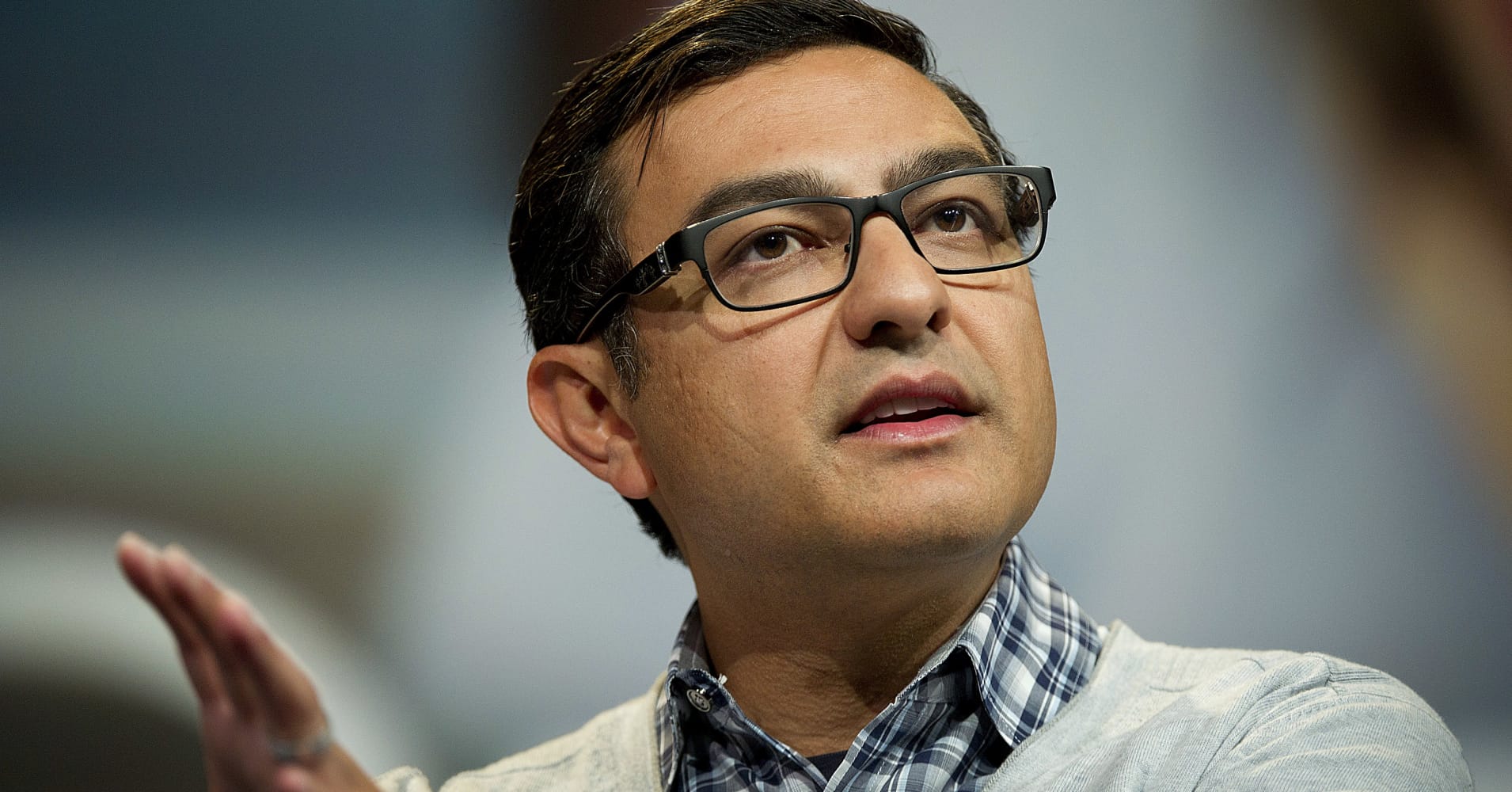AliveCor, a Silicon Valley start-up that develops technology to monitor people’s heart health, on Monday received “breakthrough device” designation from the U.S. Food and Drug Administration for developing a new way to detect high blood potassium levels without requiring any blood.
AliveCor worked with doctors at the Mayo Clinic, which is also an investor in the company, to develop a new technology that looks for a dangerous condition called hyperkalemia without requiring any blood from the patient. It instead looks for patterns in electrocardiograms (ECGs or EKGs), which are essentially recordings of the electrical signals of the heart.
“It was a pie-in-the-sky idea that we could use AI to see something like this in the ECG when no one else could,” said Vic Gundotra, CEO of AliveCor, who previously worked on AI-related technology as a senior vice president of engineering at Google. “It’s a big milestone for us.”
Hyperkalemia is often caused by problems with the kidneys, like chronic kidney disease, which is suffered by some 30 million Americans, as well as type 1 diabetes and a slew of other medical conditions. It can be life-threatening for these patients, with symptoms including trouble breathing and irregular heartbeats.
The FDA’s “breakthrough devices” program was designed to speed up approvals for technologies and devices in rare cases. Regulators will consider cases where the product offers “more effective treatment or diagnosis for life-threatening or irreversibly debilitating diseases, for which no approved or cleared treatment exists or that offer significant advantages over existing approved or cleared alternatives,” according to its website.
The start-up currently sells an attachment to a smartphone to measure the heart’s rhythm, as well as a band that fits on Apple Watch. These devices sell for $99 and up.
Hyperkalemia is typically found through a blood test, which is problematic for patients who prefer to remain at home.
The Mayo Clinic’s chair of cardiovascular medicine, Paul Friedman, told CNBC that “millions of people” are at risk of increased potassium levels. He views the screening tool as important, as many patients might not realize that they have hyperkalemia outside of the hospital.
He described a collaboration that involved Mayo’s subject matter experts working with AliveCor’s technologists to analyze a huge volume of anonymized patient data. The hospital is “selective” in such partnerships with technology companies, he explained.
“The big picture here is helping people age in place and stay at home,” Friedman said.
AliveCor’s Gundotra estimates that the product will take about a year to reach the market, as the company is still required to submit results from a clinical trial.
The company previously worked with Mayo on a method to identify a syndrome called LongQTS, which causes dangerous fast irregular heartbeats in response to stress and exercise.
Gundotra said he hopes to eventually offer AliveCor’s devices through the patient’s health insurance for patients who can’t afford the price tag.
The news comes at a time when Apple is gearing up for its big event on Wednesday, where it is expected to announce updates to its smartwatch. Top analyst Ming-Chi Kuo, who has a strong track record of predicting Apple products, expects that Apple will unveil an electrocardiogram of its own.
That would turn its device into more of a medical device, not just an exercise tracker, and open up opportunities for the company to sell to an older, sicker demographic.
Gundotra said that if Apple takes such a step, it would be an “encouraging sign,” with the “world’s most valuable company saying that an ECG is important.”
But he still warns that Apple would need to work with federal regulators to help its users understand what the data means and whether they need to seek medical attention or not.
Either way, Gundotra said AliveCor’s news represents a high point of his career in Silicon Valley.
“I’ve helped lead teams or been part of teams like Google Maps, Search and YouTube,” he said. “But very rarely do you get to work on technology that an independent body validates as having the potential to save lives.”

Leave a Reply
You must be logged in to post a comment.